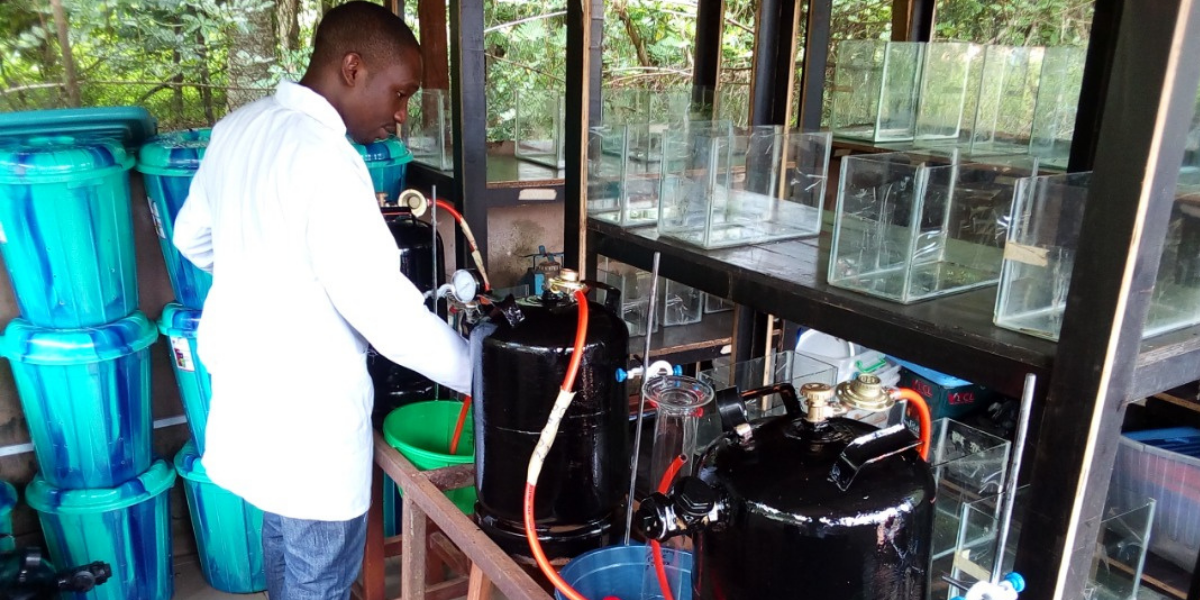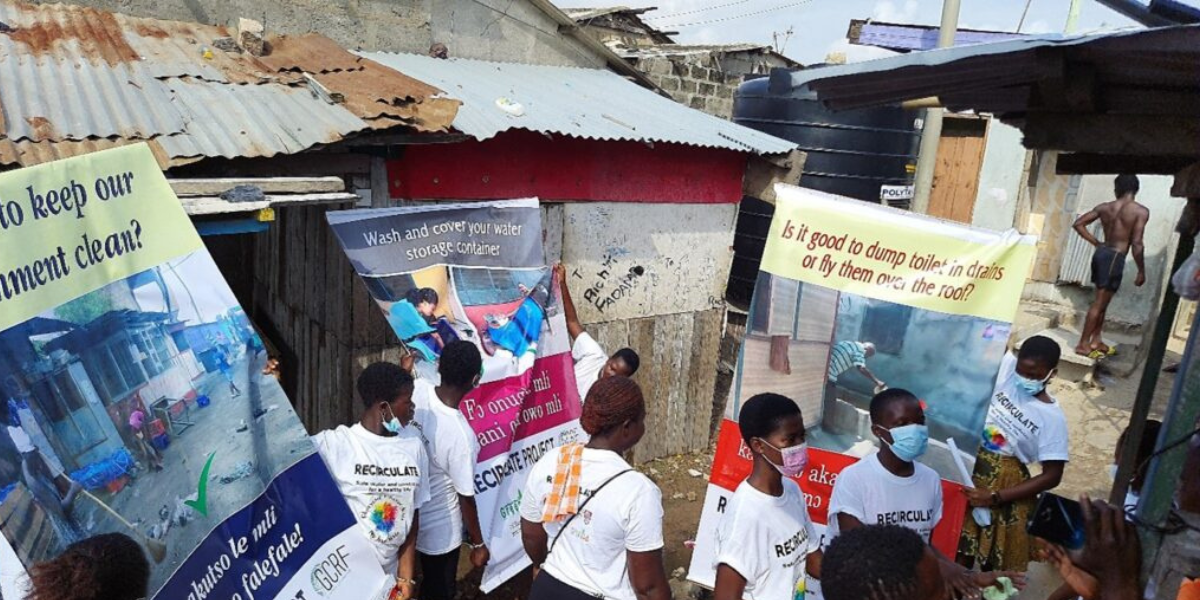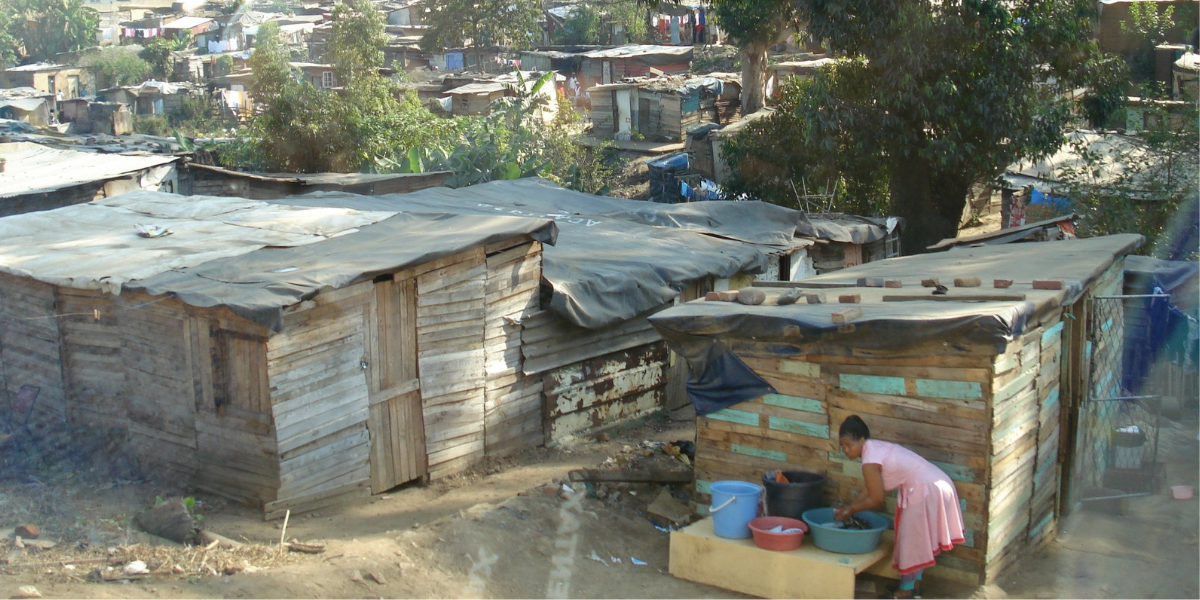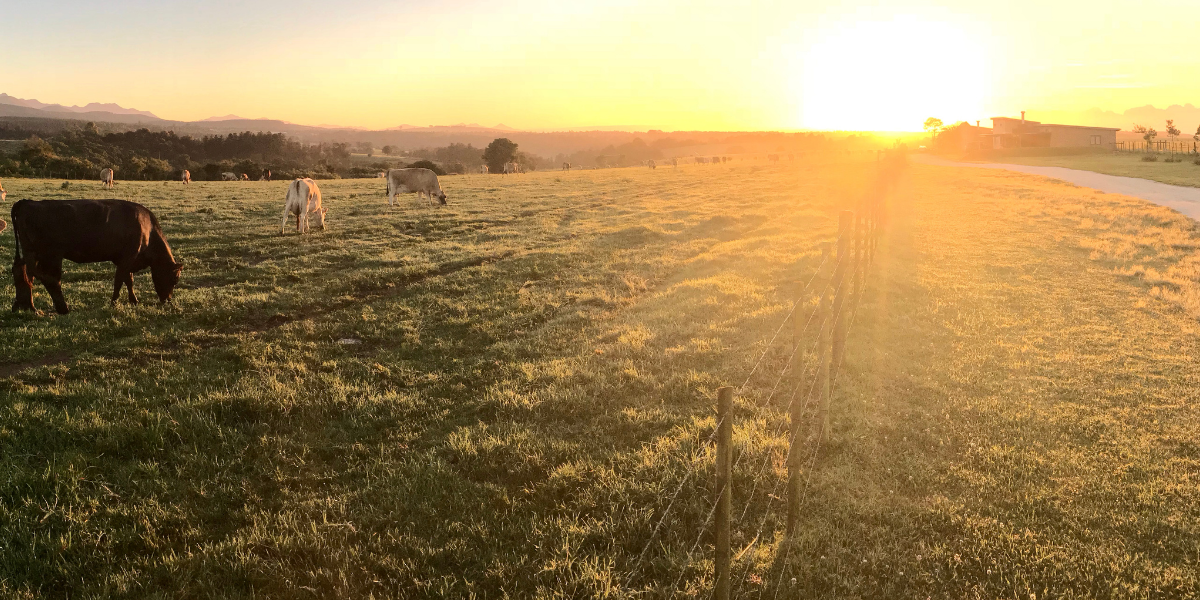
The team at the University of Benin have been working on different aspects of the RECIRCULATE Water for Energy Production workpackage, one very important part of this work being the optimization of the anaerobic digestion process.
Following on from earlier work within the project, the team have been aiming to establish the best ratio for combining cattle rumen content (CRC) and food waste (FW) as feedstocks during batch anaerobic co-digestion. Both feedstocks had hitherto been identified as suitable for sustainable biogas production in terms of availability, characteristics and cost. At the end of this part of the study, it was found that a 1:1 ratio or a combination of 50% CRC and 50% FW was optimal in terms of biogas production over a period of 42 days. It was also found that with the 50:50 combination of CRC and FW, process stability was not compromised as biogas was continually produced even at conditions of low pH.
Having established the best co-digestion ratio, other studies were carried out with the intent of assessing the possible enhancement of biogas production and the overall performance of the process. These studies included the introduction of external inoculum to the AD medium as well as the manipulation of the pH of the system to determine which was optimal. The last part of the study was the assessment of the impact of locally-sourced biochar on the performance of the AD process.
By introducing different levels of external inoculum (which in this case was cattle rumen fluid), it is thought that the population of the microbial community could be enhanced. Cattle rumen fluid was chosen as the inoculum source because it was thought that its characteristics are not so dissimilar from those of the CRC itself. In any case, the definite suitability of this inoculum was assessed by taking it through standard physicochemical and biological tests. It was found that biogas production was significantly enhanced with the introduction of inoculum and in particular the use of 25% inoculum to substrate ratio yielded the best biogas production.
Furthermore, the impact of initial pH on the efficiency of the digestion process was examined in duplicates by adopting the optimal from previous co-digestion and inoculum studies. The initial pH was adjusted to 6, 7, 8 with a control (pH 6.7). We found that for the pH range examined, there was no insignificant impact on biogas production though lower pH has been reported to aid hydrolysis of lignocellulosic materials like cattle rumen content.
The stabilization of the digestion process was also of interest to us. We examined the impact of biochar (an external material that is easily sourced locally) introduction as a stabilizing agent. Biochar was observed to have reduced the total ammonia nitrogen concentration and the total volatile fatty acids to an acceptable limit to enhance the digestion process. Though it did not significantly improve biogas yield, it however, improved biogas quality with a 23% increase in methane content. In an attempt to improve the biosafety of the process our team further examined the role of biochar on pathogen kill. Four pathogens (E. Coli, Salmonella, Pseudomonas, Bacillus) were identified for this study. By the end of the first seven days of digestion, a complete kill/inactivation of these pathogens was observed up until the termination of the digestion process under mesophilic conditions.
Summarily, with the work that has been done by the University of Benin team, process conditions for optimal biogas production from co-digestion of cattle rumen content and food waste using cattle rumen fluid as inoculum have been established and biochar has been found to not only improve the quality of the produced biogas and stabilize the system, but also aids in pathogen kill/inactivation to improve the biosafety of the whole AD process.
 |
Dr Andrew Amenaghawon is a Post-Doctoral Research Associate on the RECIRCULATE project as well as AD Performance Engineer on the ACTUATE project. He holds a BEng in Chemical Engineering from the University of Benin, an MSc in Process Systems Engineering from Imperial College London, UK and a PhD from the University of Benin. His contributions to the RECIRCULATE/ACTUATE projects have been vital to the success of the projects till date. |
 |
Newton A. Ihoeghian is a chemical engineer, academician and a researcher with the Department of Chemical Engineering, University of Benin, Nigeria. He is an Integrated Research Project researcher in the RECIRCULATE project. His research is focused on development of composite materials, effective and efficient management of waste to wealth, He is also interested in modelling, design and optimization of processes for optimal delivery. |




